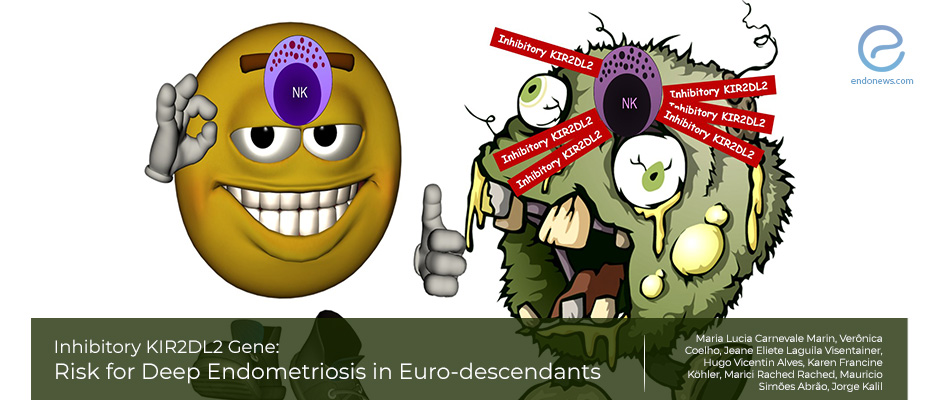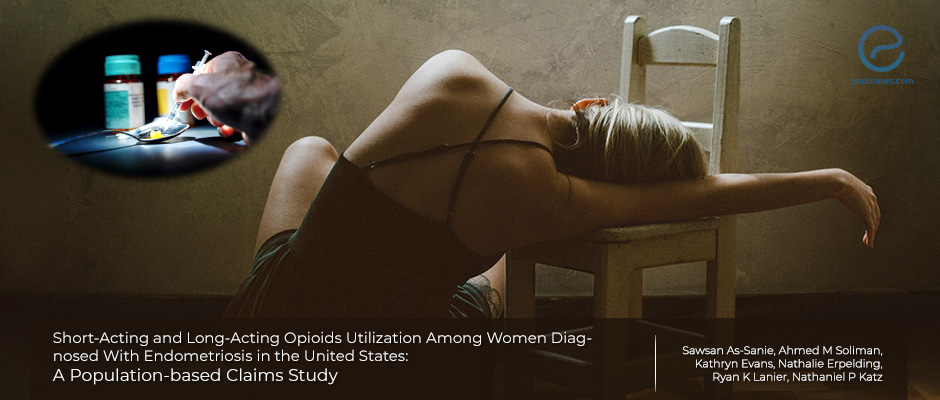Fallopian tube occlusion in infertile women with endometriosis
Women with endometriosis suffer from fertility problems with an incidence of 40-50%. Among the pathophysiologic mechanisms resulting in impaired fertility in women with endometriosis, distorted pelvic anatomy due to adhesions, impaired follicular quality-quantity, dysfunction of tubal peristalsis, and implantation problems…
Key Points Lay SummaryHow likely is it to get pregnant and have a baby after undergoing surgery for high stage endometriosis?
As one of the most common causes of infertility in women, endometriosis might be surgically interfered with depending on the stage. For Stage I and II endometriosis, surgery is recommended in the latest guidelines to ameliorate fertility rates, however, there…
Key Points Lay SummaryA new "nonhormonal" treatment target in endometriosis
Endometriosis is a chronic inflammatory condition that affects millions of women globally. With pelvic pain being its most common symptom, the cost of the treatment of disease-associated symptoms has been found to be almost as high as type 2 diabetes.…
Key Points Lay SummaryIt is not that simple: endometriomas are almost never alone
Endometriomas are the widely and easily diagnosed type of endometriosis. They are usually treated by gynecologic surgeons and are thought to be alone most of the time. The study conducted by Piriyev et al highlighted the coexistence of extraovarian endometriosis…
Key Points Lay SummaryRetinol-binding protein in endometriosis pathogenesis
Dr. Jae Chul Lee and associates from the Department of Obstetrics and Gynecology, University of Ulsan College of Medicine, Asan Medical Center, Seoul, Korea, have published the recent results of their research on endometriosis regarding the role of retinol-binding protein4…
Key Points Lay SummaryEndometriosis in intestine! Segmental resection or linear nodulectomy?
Intestinal involvement of endometriosis is common, and the incidence was defined between 45-56%. Previous studies investigating the role of surgery in the management of intestinal endometriosis reported improvement of life quality in up to 95% of cases following surgery. However,…
Key Points Lay SummaryColorectal Deep Endometriosis Resection and Potential Complications
A severe clinical form of endometriosis, deeply infiltrating endometriosis (DIE) is characterized by more aggressive endometriotic lesions commonly involving deeper pelvic or gastrointestinal organs. It causes significant quality of life impairment and morbidity and is increasingly associated with infertility. When…
Key Points Lay SummaryInhibiting killer on the move
The three main forms of endometriosis are superficial, ovarian, and deep endometriosis. The latter is defined by the presence of endometriotic nodules that are deeper than 5 mm. Deep endometriosis is considered the most aggressive and is associated with severe…
Key Points Lay SummaryOpioids use in women with endometriosis, what does it tell us?
Endometriosis is a debilitating disease that can cause many painful symptoms such as dysmenorrhea, dyspareunia, infertility, chronic pelvic pain, abdominal pain, and sacral or low back pain. More than half of women diagnosed with endometriosis suffer from chronic pelvic pain.…
Key Points Lay SummaryEndometriosis surgery and future pregnancy complications
Endometriosis is one of the known diseases for infertility in the reproductive period of women. Several studies revealed that endometriosis itself maybe the reason for some unfavorable obstetric outcomes. Localization, the type of endometriotic lesions, and the stage of endometriosis…
Key Points Lay Summary
 By Hale Goksever Celik
By Hale Goksever Celik

 By Eylül GÜN
By Eylül GÜN


 By Bahar Yuksel
By Bahar Yuksel

 By Nasuhi Engin Aydin
By Nasuhi Engin Aydin


 By Murat Osman
By Murat Osman

 By Yu Yu
By Yu Yu


 By Selma Oransay
By Selma Oransay